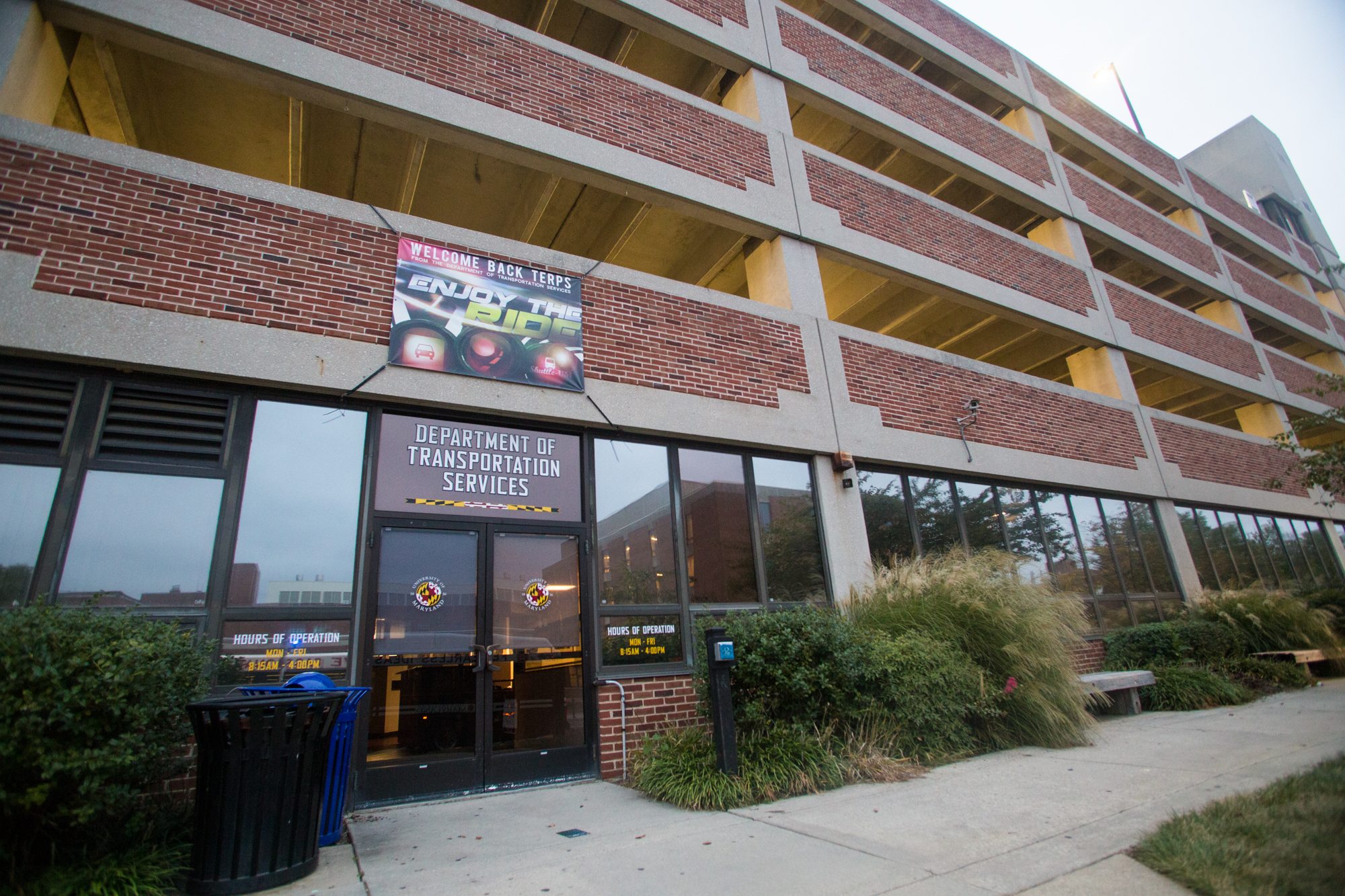DOTS hopes to offer vanpooling next semester for commuters to the University of Maryland as part of its sustainability initiatives.
Vanpooling, similar to carpooling, will allow five to 12 commuters who live near each other to connect and share rides to the campus in vans or SUVs provided by Enterprise Rent-A-Car, said Anna McLaughlin, a Department of Transportation Services spokeswoman.
Students, staff and faculty who drive to the campus can register on the DOTS website by entering their home address and personal schedule. The site finds commuters who live nearby to ride or drive with. Other options such as regional and local transit and Shuttle-UM routes are also visible on the site.
McLaughlin said about 2,000 commuters have registered on the site so far, and DOTS has identified four areas — Gaithersburg-Rockville, Columbia, Alexandria-Springfield and Bowie — where individuals are currently driving from that would be ideal for vanpooling.
[Read more: UMD DOTS launches a website to help commuters carpool]
DOTS shuttles run from Gaithersburg and Columbia park and rides, with each coming twice in the morning and twice in the evening on a set schedule. The Columbia and Gaithersburg buses run from 6 a.m. to 8:25 p.m.
The department’s sustainable transportation program, UMD Smart Commute, has launched several other initiatives that encourage commuters to use options such as Zipcar, bike-sharing and working from home.
“[Smart Commute] is a program to get people out of their cars, give people options and reduce parking demand and single-occupancy vehicles that travel to campus,” McLaughlin said.
DOTS previously proposed a 600-spot garage on the campus and a 1,000-spot parking lot near Xfinity Center. The Residence Hall Association opposed the parking lot proposal, citing environmental concerns, and the administration declined to construct the parking garage for financial reasons, DOTS Director David Allen said.
Senior John-Edward Draganov rides the Gaithersburg commuter bus every day, so he was intrigued by the idea of vanpooling, which he said would allow for more scheduling flexibility.
“[The bus] really interrupts your schedule in terms of planning out your classes,” the mechanical engineering major said, adding that he feels constrained by the bus schedule, which doesn’t allow him to participate in activities such as late-night study groups. “You have to plan around the bus schedule.”
Klaudia Sulima, a sophomore public health science major, voiced concerns about sharing a car with strangers and said the bus is more reliable.
“I tend to trust buses more than a stranger because [driving is] what they’re paid to do,” said Sulima, who rides the Gaithersburg commuter bus several times a month.
Draganov said riding with strangers wouldn’t bother him because vanpool riders would be from this university.
“At least you would have a general sense of who you would be going with,” Draganov said.
Aaron Abshire, the RHA Transportation Advisory Committee chair, wrote in an email that it’s important for students to have multiple options to easily access the campus.
“Vanpooling is a good idea for certain students … who are already living close to campus,” Abshire wrote, but he added it may be uncomfortable to share a car with a group.
Commuters will sign customizable month-to-month contracts with Enterprise, McLaughlin said. Riders may choose the type of vehicle and amenities they want, such as heated seats, but fees will vary based on insurance, gas and maintenance. The drivers then sign a lease to rent the vehicle.
“It’s very flexible based on the group,” McLaughlin said. Commuters can set multiple pickup locations, as well as preferences about who can drive the van and who keeps the van over the lifetime of the contract.
“If you live beyond 15 miles of your work location, it’s really a cost saver,” McLaughlin said, adding that it will take work to educate and connect riders with each other who might not know there are ways to get to the campus aside from taking their cars.
“There’s a bit of legwork to get [riders] going,” McLaughlin said.
[Read more: A UMD student launched a ride-sharing app to help students carpool home]
Information meetings will be scheduled in December to begin educating commuters on the benefits of ride-sharing, such as reduced gas, maintenance and insurance costs, McLaughlin said.
DOTS offers a 50 percent discount for yearly permit-holders who participate in the vanpooling program, according to the department website.
McLaughlin said she hopes to have the program’s first vans on the road by January.
“A dozen vans could really make an impact,” she said. “That’s quite a few cars out of parking lots.”



